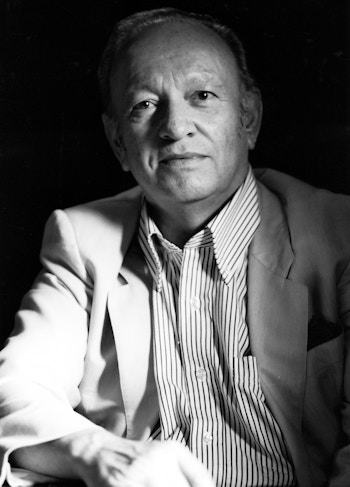
Norman Derek Mahon was born in Belfast in 1941 to a Protestant family. His father, Norman, was a shipyard fitter at Harland and Wolff, and his mother, Maisie, worked at a nearby linen factory. An only child, Mahon had a rich imaginative life and an early inclination to literature. He attended Skegoneill Primary School, then the Royal Belfast Academical Institution, where he published precocious early poems in the school magazine and won the regional Forrest Reid Memorial Prize in poetry. Mahon went on to read English and French at Trinity College, Dublin. There, he served as editor of the student literary magazine and befriended poets Michael Longley and Eavan Boland. He was sent down for poor behavior twice and readmitted both times, taking the break in his studies as an opportunity to study at the Sorbonne, though he reportedly spent more time in Paris cafés than on schoolwork.
In 1965, Mahon published the pamphlet Twelve Poems, which was awarded the Gregory Prize. Next came 1968’s Night-Crossing, a Poetry Book Society Choice. During this period of his life, Mahon lived in cities across the United States, Canada, and Ireland, working variously as a reviewer, screenwriter, journalist, editor, and schoolteacher. In 1972, Mahon married Ulster Television newsreader Doreen Douglas, with whom he had two children, Rory and Katherine Jane. Due to his alcoholism and philandering, the pair separated in the 1980s, though they remained married until Douglas’s death in 2010. Mahon’s poetry collections, published regularly during these decades, already centered on what would become the themes of his oeuvre: the isolation of modern life and the complex relationship between the artist and the corruption of the world. Often compared to poets such as W. H. Auden and Richard Wilbur, Mahon wrote in a distinctive loose iambic pentameter while the rest of his generation embraced free verse.
Mahon moved back to the United States in 1990, where he taught at New York University, Columbia University, and Barnard College. His third child, Maisie, was born in 1993 from a relationship with Jane Desmarais. While abroad, Mahon wrote the column “Letter from New York” for the Irish Times. His famed epistolary verse-novel The Hudson Letter, based on his time in Manhattan, was published in 1995, the same year he returned to Ireland. Mahon settled in Kinsale, County Cork, in 2003. Here, his poetic output flourished: he published multiple lauded collections in just five years, including Harbour Lights, which won the Irish Times Poetry Now Award, and Life on Earth (2008), the winner of a second Irish Times Poetry Now Award and a shortlisted title for the Griffin Poetry Prize.
Described by Paul Muldoon as “the unlikely laureate of the Protestant working class of North Belfast,” Mahon is widely considered to be one of the preeminent Irish poets of the latter half of the 20th century. His many accolades include the David Cohen Prize for Literature, the Scott-Manriet Translation Prize, the Irish American Foundation Award, the Irish Times/Aer Lingus Poetry Prize, a Lannan Literary Award, a Guggenheim Fellowship, the American Ireland Fund Literary Award, the Irish Arts Council Bursary, the Eric Gregory Award, and honorary doctorates from both Trinity and NUI Galway. Mahon was also an Aosdána member and a translator of poetry from French, German, Latin, and Ancient Greek. His early poetry remains relevant and fresh today: his 1979 poem “Everything Is Going to Be All Right” went viral during the Covid-19 pandemic. Mahon died in Kinsale on October 1, 2020, after a short illness, and was survived by his partner, Sarah Iremonger, and his three children.
-
Learn more about Derek Mahon
Video: Derek Mahon reads his poem "Everything Is Going to Be All Right"
Text: Declan Ryan on Mahon's poetry at Los Angeles Review of Books
Text: Mahon's translation of Horace's Odes 1.11, "How to Live"
-
Photo by John Minihan/The Gallery Press.